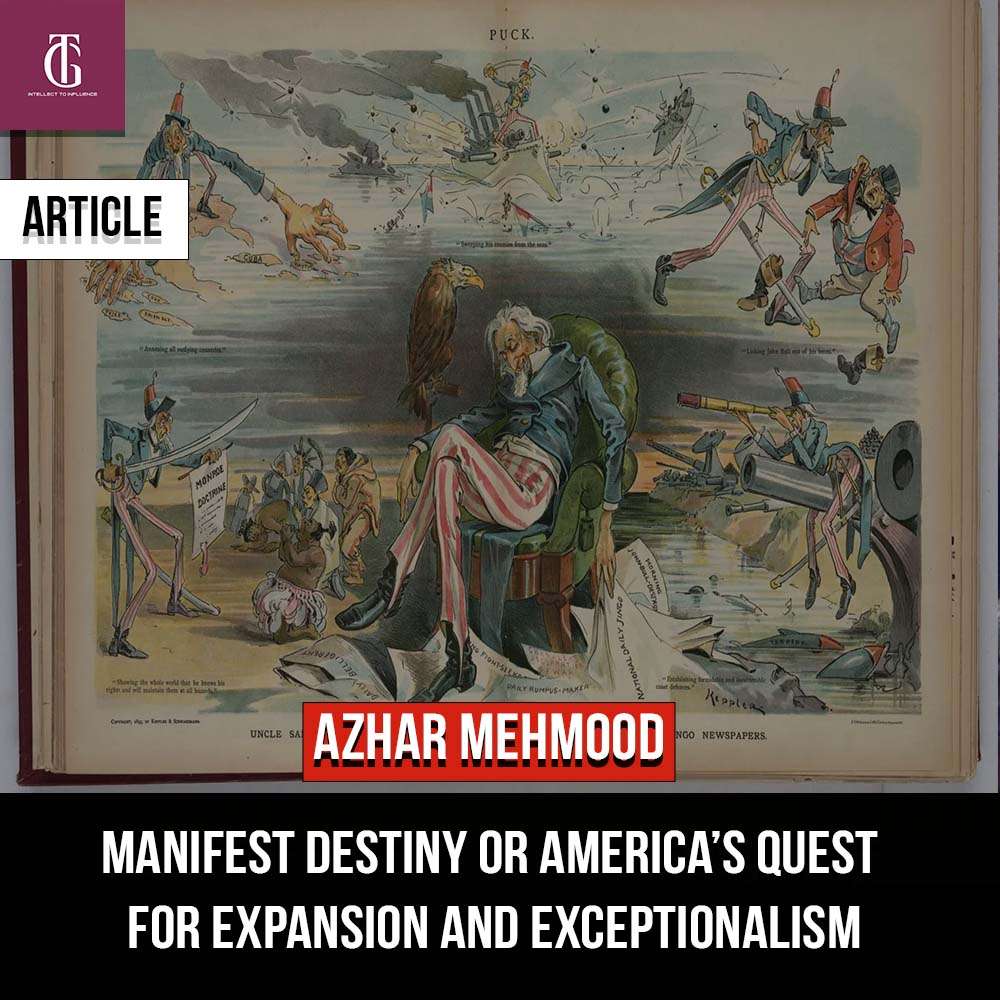
Manifest Destiny is a defining ideology that shaped the expansionist policies and national identity of the United States during the 19th century. Rooted in notions of American exceptionalism, territorial expansion, and westward expansion, Manifest Destiny encapsulated the belief in the inevitability and righteousness of American territorial expansion across the North American continent. This essay provides a comprehensive analysis of Manifest Destiny, examining its origins, manifestations, consequences, and enduring legacy in American history.
First of all, the concept of Manifest Destiny emerged as a prominent ideology in the United States during the 19th century, fueled by a combination of factors such as nationalism, economic opportunity, and racial superiority. The term “Manifest Destiny” was first coined by journalist John O’Sullivan in 1845, who argued that it was America’s divine mission to expand its territory and spread democracy and civilization from coast to coast. Drawing on religious and cultural justifications, proponents of Manifest Destiny framed westward expansion as a moral imperative and a fulfillment of America’s destiny as a chosen nation.
Moreover, Manifest Destiny found expression in America’s relentless pursuit of territorial expansion across the North American continent, driven by a combination of economic incentives, political ambitions, and ideological fervor. From the Louisiana Purchase in 1803 to the annexation of Texas in 1845 and the acquisition of territories such as California, Oregon, and the Southwest, the United States expanded its borders through diplomacy, purchase, and military conquest. The belief in Manifest Destiny justified the displacement and dispossession of indigenous peoples, as well as the annexation of Mexican territory through the Mexican-American War (1846-1848)
Thirdly, the westward expansion fueled by Manifest Destiny had devastating consequences for indigenous peoples, whose lands and way of life were systematically destroyed and disrupted. Forced removals such as the Trail of Tears, the establishment of Indian reservations, and violent conflicts such as the Dakota War of 1862 epitomized the tragic legacy of Manifest Destiny for Native American communities. Moreover, the expansionist policies of Manifest Destiny exacerbated tensions over issues such as slavery and states’ rights, culminating in the Civil War and the abolition of slavery.
In addition to this, Manifest Destiny facilitated the economic expansion and development of the United States by opening up new lands for settlement, agriculture, and resource extraction. The promise of fertile lands, mineral wealth, and economic opportunity attracted millions of immigrants to the frontier, fueling population growth and economic prosperity. The completion of transcontinental railways such as the Union Pacific and Central Pacific Railroad further facilitated westward migration and economic integration, connecting the eastern and western halves of the country and spurring industrialization and urbanization.
Lastly, the legacy of Manifest Destiny continues to resonate in American history and culture, shaping perceptions of national identity, exceptionalism, and territorial expansion. While celebrated as a symbol of American ingenuity, resilience, and progress, Manifest Destiny also carries a legacy of imperialism, conquest, and dispossession that has left enduring scars on indigenous peoples and minority communities. Moreover, the enduring myth of Manifest Destiny has influenced American foreign policy, particularly in the context of overseas expansion and interventionism, as seen in the Spanish-American War and the War on Terror.
To cut a long story short, Manifest Destiny represents a pivotal chapter in American history, encapsulating the nation’s aspirations, contradictions, and complexities as it expanded across the North American continent. While celebrated as a triumph of American ingenuity and exceptionalism, Manifest Destiny also carries a legacy of dispossession, displacement, and injustice for indigenous peoples and minority communities. As the United States grapples with its past and navigates its future, the legacy of Manifest Destiny serves as a reminder of the enduring tensions between expansion and exploitation, freedom and conquest, that continue to shape the nation’s identity and destiny.
The author is a student of Politics and International Relations at QAU, Islamabad.





